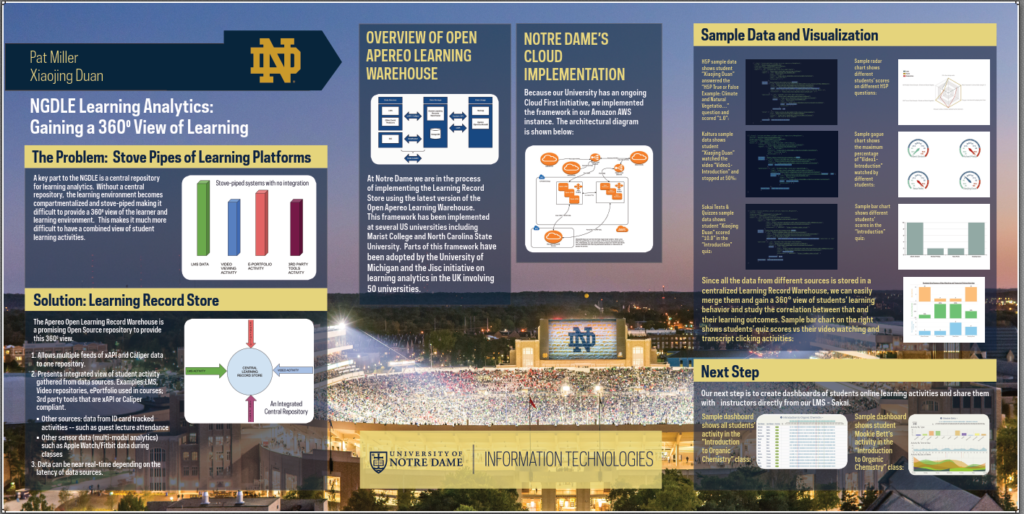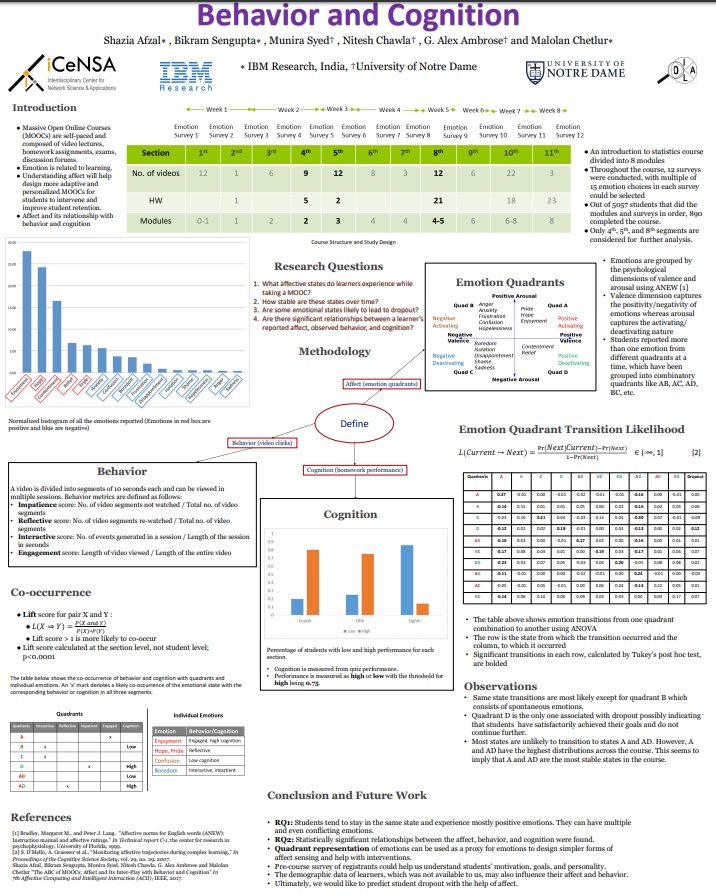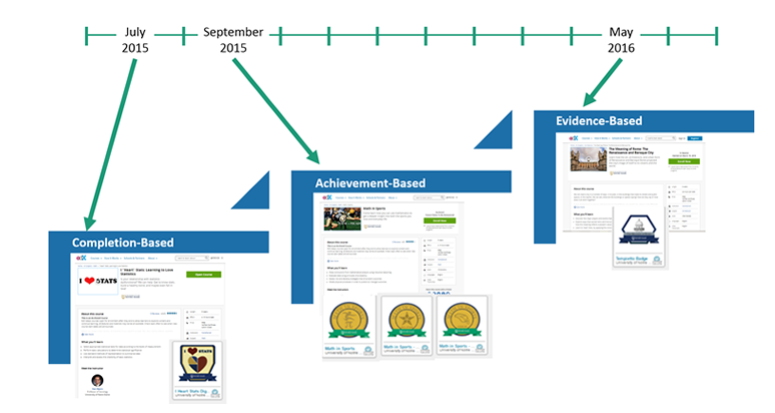In July of 2015, the University of Notre Dame’s Office of Digital Learning & Kaneb Center for Teaching & Learning successfully designed, developed, and delivered one of the earliest and largest digital badge initiatives in an edX MOOC
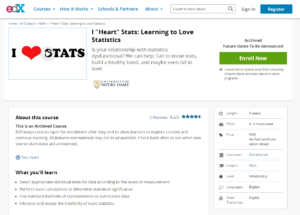
Click here to see the edX course “I ‘Heart'” Stats: Learning to Love Statistics”
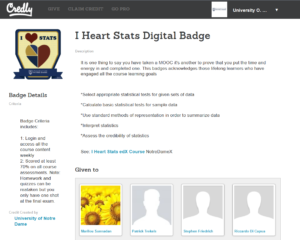
Click here to see the 151 Credly badges that were issued.
We also did a design-based research study on this project that you can read more about below.
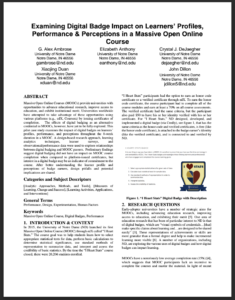
Ambrose, G. Alex, Anthony, Elizabeth, DeJaegher, Duan, Xiaojing, Crystal, Dillon, John ( 2015) “Examining Digital Badge Impact on Learners’ Profiles, Performance & Perceptions in a Massive Open Online Course” University of Notre Dame, Research & Assessment for Learning Design Lab.
Click on the hyperlink above to read our self-published paper. Unfortunately, this short paper was not accepted to this year’s Learning Analytics & Knowledge Conference but blind review journals and conferences won’t stop us from getting this work out (thanks to self-publish blogs and Academia.edu). So in the meantime, let’s use this self-published citation for attribution.
Abstract:
Massive Open Online Courses (MOOCs) provide universities with opportunities to advance educational research, improve access to education, and exhibit institutional merit. Universities worldwide have attempted to take advantage of these opportunities using various platforms (e.g., edX, Coursera) by issuing certificates of completion. The effects of digital badging as an alternative credential in MOOCs, however, have yet to be fully explored. This pilot case study examines the impact of digital badges on learners’ profiles, performance, and perceptions throughout the 8-week duration in a MOOC. A design-based research approach, learning analytics techniques, learner surveys, and observational/performance data were used to explore relationships between digital badging and MOOC passers. Preliminary findings suggest digital badging did not have an impact on MOOC course completion when compared to platform-issued certificates, but interest in a digital badge may be an indicator of commitment to the course. After better understanding the learner profile and perceptions of badge earners, design pitfalls and potential implications are shared.
Twitter 140 characters or less summary:
@NotreDame issues one of earliest & largest @Credly #DigitalBadge in @edX #MOOC
